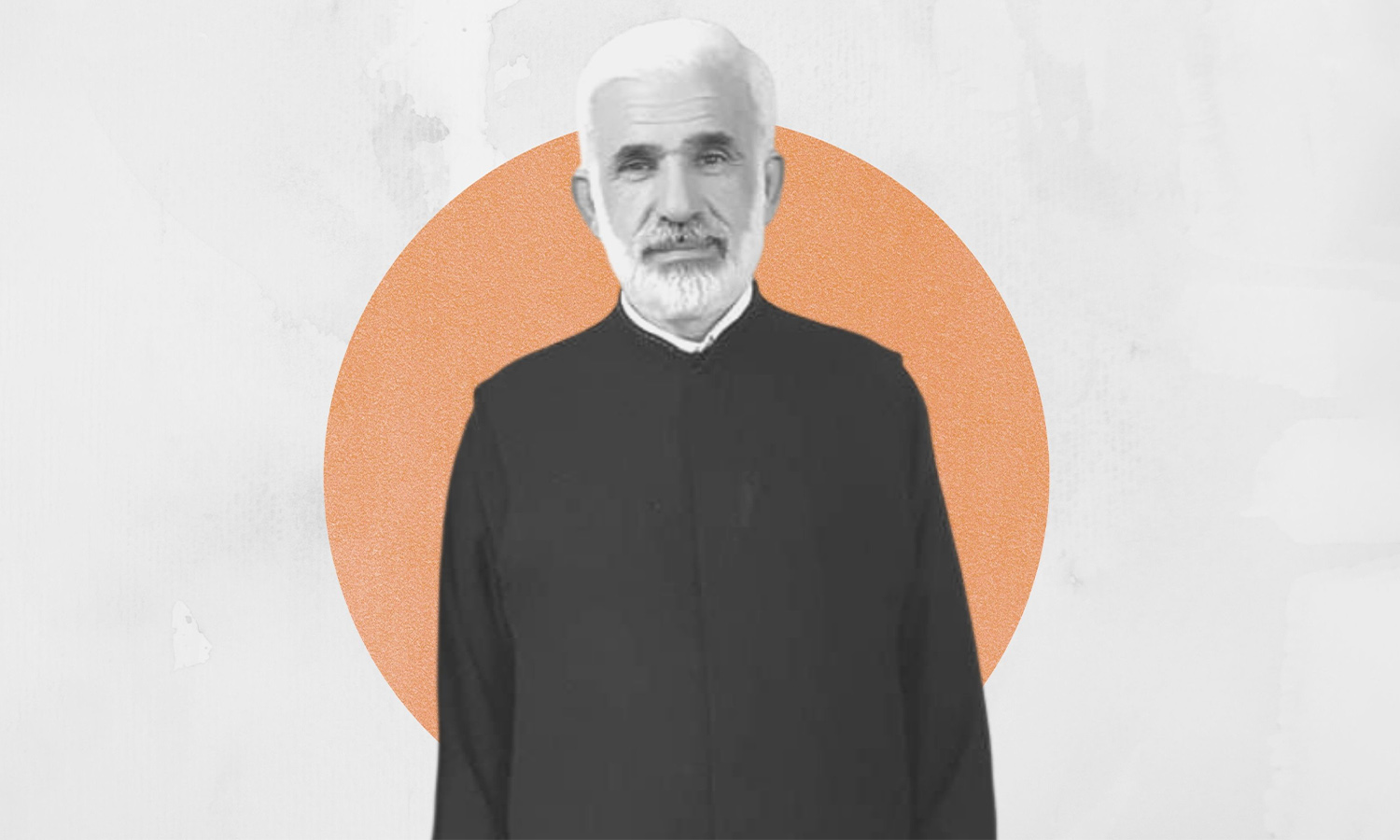On Thursday, a burial ceremony was held for Reverend George Rafik Hosh, who died after committing suicide. The ceremony was held at the Church of Saint Elias in al-Faros neighborhood, downtown Lattakia.
Confidential sources close to the curate confirmed to Enab Baladi that the ceremony was not widely attended. This was because the Greek Orthodox Church did not issue a funeral notice publicizing the time of burial and the ceremony’s details.
The suicide of priest George Rafik Hosh at a Greek Orthodox church in Lattakia on Wednesday sparked a huge reaction on social media, as well as widespread controversy and astonishment at his death.
The priest shot himself inside the sacristy of the Church of St. George, which is located in the al-Sagha market near the al-Awena neighborhood. The suicide occurred while Hosh was preparing to perform mass, according to Enab Baladi’s sources. They explained that the primary reason for the incident was that Metropolitan Bishop Athanasius Fahd had suspended Hosh’s powers.
Security forces surrounded the church, and Bishop Athanasius himself attended after returning from a visit to Damascus. Following these events, the Diocese of Lattakia issued a statement for the Greek Orthodox faithful stating that Reverend Hosh had ended his life as a result of personal, psychological, and social pressures.
Based on the investigation, the priest shot himself with his personal 7.5 mm pistol due to psychological and social pressures. According to the Interior Ministry, Hosh was found with handwritten paper clippings confirming this version of events.
Who was George Hosh?
Born in Lattakia in 1956, George Hosh grew up around the Church of St. Elias in the Faros neighborhood. He studied theology and was ordained as a priest in the village of Haluz in the western Idleb countryside.
Hosh married a woman from the city of Ghassanieh in the western countryside of Idleb, after he was ordained as a priest. This decision sparked indignation as a sacrilegious offense. Hosh was exiled to Aleppo city, and then to the St George Monastery in Homs city.
Hosh was then appointed to the Church of our Lady (al-Jawziya) in Lattakia, then the Church of Barbara, and ultimately the Church of St. George. With the suspension of Hosh’s powers, however, he was forbidden from entering the diocese and the church, as well as from performing and practicing his religious rituals and consulting with the church. The suspension even forbade him from performing prayers.
The priest is known for providing assistance to the people and entering negotiations for the release of detainees and abductees. He enjoys wide popular support amongst his community.
“Reconciliation” messages from a religious platform
The priest’s work was not limited to his symbolism and religious standing. Hosh was a member of the so-called “National Reconciliation Committee,” which falls under the Ministry of Justice’s control and adopts the Syrian regime’s version of events in Syria. Hosh has repeatedly appeared in reconciliations and negotiations.
In May 2014, Hosh appeared in the southern Raml neighborhood of Lattakia at a gathering of dozens of demonstrators. He appealed and sent a message to those who had been “lured away from the homeland” in the mountains of the northern countryside to “put down their arms, return to the heart of the homeland, and support the drive for civil peace.”
At the time, Hosh said that he had come to send a message to “our families and children in the northern countryside—including our children in Kansaba, Salma, Rabi’a, and others—to return to the country’s heart. The country opens its arms to them every day to return and integrate under the national banner, and to confirm that what is taking place constitutes a loss for all Syrians. In these circumstances, the only victors are the enemies of Syria.”
Hosh’s appearance was accompanied by his public claims about the need to make “national reconciliation” a popular demand in all Syrian regions. He stressed that Syrians “have never and will never know such a culture,” and will consider that experience as a “cruel lesson that they will carry forward to later generations.”
This article was translated and edited by The Syrian Observer. The Syrian Observer has not verified the content of this story. Responsibility for the information and views set out in this article lies entirely with the author.


